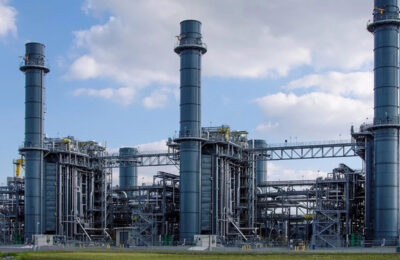The Department of Mineral Resources and Energy (DMRE) has published the Gas Amendment Bill for public comment, which will make way for a massive expansion of the sector in South Africa as the government looks for ways to deal with the energy crisis.
The Bill will make changes to the Gas Act of 2001, and follows previous attempts (through the Gas Amendment Bill of 2021), which were ultimately withdrawn from parliamentary processes in 2022 to address feedback from stakeholders.
Cabinet approved the new amendment bill on 29 November 2023.
The new Gas Amendment Bill (2023) broadly aims to make the following changes:
- Insert and change certain definitions related to the gas industry;
- Provide for and promote the ‘orderly development’ of the gas industry in South Africa;
- Enhance the regulatory framework;
- Promote broad-based black economic empowerment in the sector;
- Provide for the socio-economic and environmentally sustainable development of the sector;
- Provide for new development and changing technologies in the gas sector;
- Facilitate gas infrastructure development and investment;
- Provide for the cooperation between the private and public sectors;
- Strengthen enforcement and improve compliance with the regulations;
- Other changes related to the sector.
The amendment bill itself works to update many of the definitions in the older Act to bring it more in line with current government policies and modern developments in the sector, while expanding the coverage of the regulations in the gas industry itself.
The key changes, however, are establishing various regulations to build out the gas industry, and rooting licensing, requirements and conditions with the national energy regulator and the DMRE.
In terms of building out the gas industry, the amendments explicitly bring in sustainability and competitive trade as part of the development goals while also facilitating “integrated energy projects”.
One of the more explicit changes, however, is updating the BEE revisions to be more in line with the government’s contemporary economic empowerment policies.
This includes the more generic reference to “black persons” (black African, Coloured and Indian) in accordance with the Broad-Based Black Economic Empowerment (BBBEE) Act and the promotion of companies in the gas industry that are owned by these individuals.
The bill also specifically adds the promotion of skills development and employment equity in the gas industry as a whole.
Another significant change is the removal of section 20 of the Act, which deals with the sale of state assets. The Act currently allows for the sale of state assets in the sector as long as it follows an open bidding process – the bill removes this section entirely.
It also adds new sections, such as 22A – which allows for licensees to apply for exclusivity in the construction and sale of gas in certain areas, with conditions set by the regulator and ministry, and section 22B – which allows the regulator to regulate and set maximum prices that may be charged.
Big gas play
The amendment bill presents a significant shift for the gas industry in South Africa, particularly in light of the latest Integrated Resource Plan (IRP) for 2023, which some analysts have described as “gas-heavy”.
The draft IRP 2023 was published for public comment on 4 January and still has to go through feedback and revision processes, but the document – which lays out the government’s energy plan for the next few decades – gives insights into where South Africa’s energy mix is heading.
The IRP’s assumptions for power supply through to 2030 are of a significant shortfall – a shortfall which it argues can be addressed by over 7,200MW of new gas-to-power capacity. This is a significant upscaling of gas power from the 2019 IRP.
Of this new capacity, 3,000MW is anticipated to come from Eskom gas projects, 3,000MW from independent producers, and 1,220MW from power ship projects – some of which have already fallen flat, and face continued challenges.
The draft IRP has faced major criticism, particularly from proponents of renewable energy as the answer to South Africa’s energy woes.
Academics have noted that the plans for increased gas energy has been vigorously opposed by environmental and other civil society groups on the grounds that increased use of fossil fuels would accelerate global warming.
Another problem is that the gas would have to be imported, leaving South Africa at the mercy of international gas price fluctuations.
However, the Gas Amendment Bill shows that the government has big plans for the sector, and the prospect of developing major gas projects is unlikely to simmer down.

